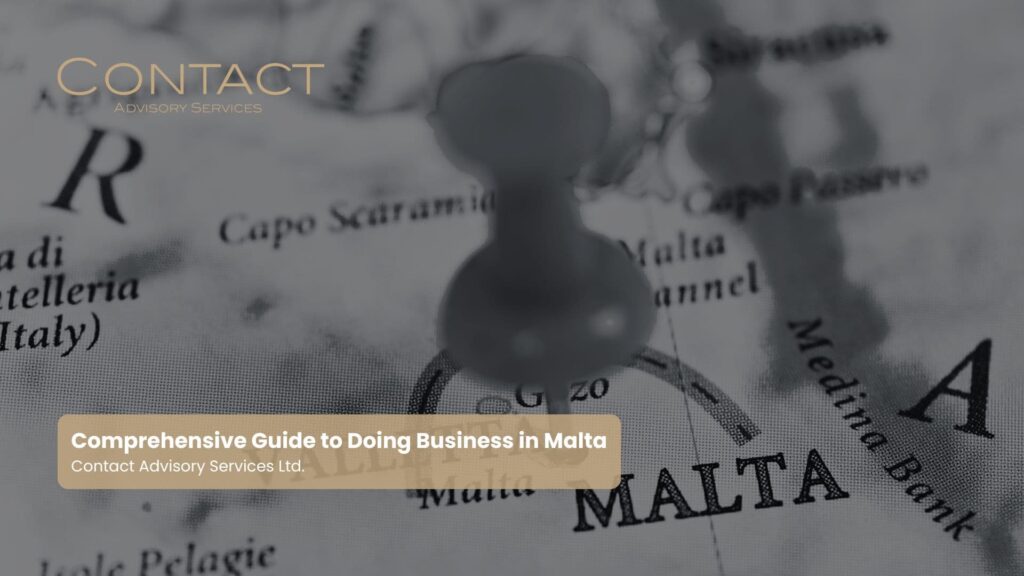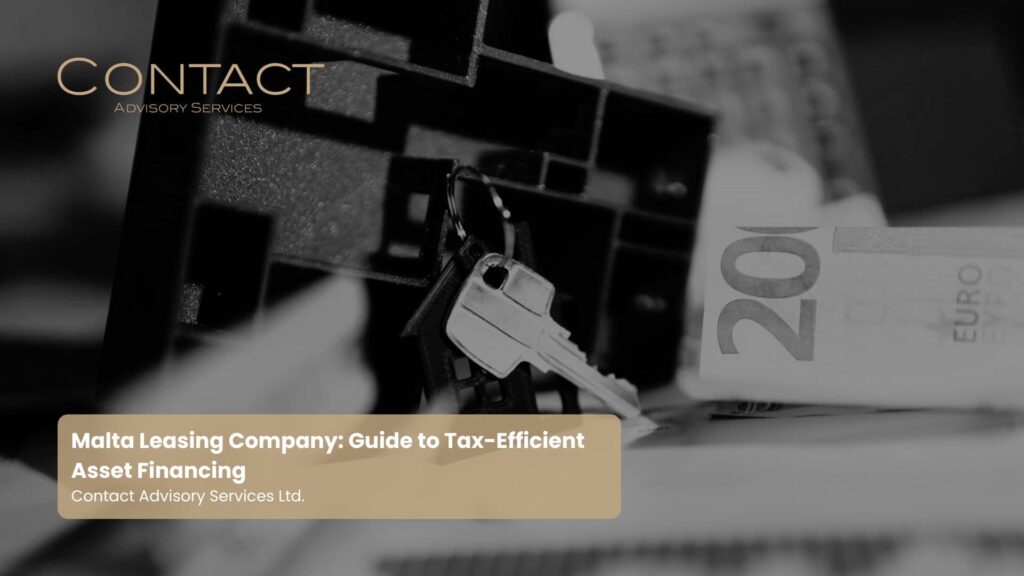The global construction industry is experiencing a period of robust growth, with projections indicating it will reach a staggering $10 trillion by 2025. As international construction and engineering projects become increasingly prevalent, businesses are seeking strategic locations that offer a competitive edge. Malta, an island nation strategically positioned in the heart of the Mediterranean, has emerged as a prime destination for construction companies seeking tax efficiency, a skilled workforce, and a stable business environment.
This comprehensive guide will delve into the myriad benefits of establishing a Malta construction company, exploring the legal and operational aspects, tax planning strategies, and key considerations for success in this thriving sector. Whether you’re a seasoned contractor or an aspiring entrepreneur, this article will provide you with the knowledge and insights you need to build a solid foundation for your construction business in Malta.
Why Choose Malta for Your Construction Company?
Malta offers a compelling combination of factors that make it an ideal choice for construction companies seeking to expand their operations and capitalize on international opportunities.
Malta’s Favorable Tax Regime for Construction Companies
Malta’s tax system is designed to attract businesses, and construction companies are no exception. The country offers a competitive corporate tax rate of 35%, but through various tax incentives and allowances, the effective tax rate can be significantly reduced.
- Capital Allowances: Construction companies can benefit from generous capital allowances on their investments in plant and machinery, allowing them to deduct a portion of the asset’s cost from their taxable income each year. This significantly reduces the tax burden and enhances profitability.
- Tax Incentives: Malta offers various tax incentives to encourage investment in the construction sector, such as tax credits for research and development, innovation, and environmental initiatives.
- Double Taxation Treaties: Malta has an extensive network of double taxation treaties with over 70 countries. These treaties prevent double taxation on income earned from construction projects in those countries, making it easier for Maltese companies to compete on international projects. Notably, foreign contractors and engineers working on projects in Malta may be exempt from paying tax in their home country if the project duration falls within the limits specified in the relevant treaty.
Strategic Location and Infrastructure
Malta’s strategic location in the Mediterranean Sea provides a gateway to Europe, Africa, and the Middle East. This makes it an ideal hub for construction companies seeking to undertake projects in these regions. The island boasts a well-developed infrastructure, including modern ports, an international airport, and efficient road networks, which facilitate the movement of materials and equipment, supporting construction activities and logistics.
Skilled Workforce and Expertise
Malta has a skilled workforce with experience in various aspects of the construction industry, including engineers, architects, project managers, and construction workers. The country also has several educational institutions offering programs in construction and engineering, ensuring a steady supply of qualified professionals. This availability of skilled labour reduces the need for companies to rely heavily on foreign workers, saving costs and streamlining operations.
Stable Political and Economic Environment
Malta enjoys a stable political and economic environment, providing a secure and predictable foundation for businesses. The country has a long history of political stability, a strong legal framework, and a robust economy, making it an attractive destination for foreign investment. This stability offers construction companies the confidence to invest in long-term projects and build lasting relationships with clients and partners.
Setting Up a Malta Construction Company
Establishing a construction company in Malta is a straightforward process, guided by clear regulations and procedures.
Legal Structures for Construction Companies
The most common legal structures for construction companies in Malta are:
- Limited Liability Company (LLC): This is the most popular choice due to its limited liability protection and flexible ownership structure.
- Partnership: Partnerships may be suitable for smaller construction businesses or joint ventures between contractors.
Choosing the right legal structure depends on factors such as the size and scope of your construction activities, the number of investors involved, and your desired level of control and liability. Consult with a legal professional from Contact Advisory Services Ltd to help you determine the best option for your specific needs.
Registration and Compliance Procedures
Registering a construction company in Malta involves the following steps:
- Choose a Company Name: Select a unique name that complies with Malta’s naming regulations.
- Draft the Memorandum and Articles of Association: These documents outline the company’s purpose, structure, and internal rules.
- Appoint Directors and Shareholders: Choose the individuals or entities who will manage and own the company.
- Establish a Registered Office: Designate a physical address in Malta where official correspondence will be received.
- Submit the Application: File the necessary documents and pay the registration fees to the Malta Business Registry.
Construction companies in Malta must also comply with various regulatory requirements, including obtaining necessary permits and licenses, adhering to building codes and safety regulations, and fulfilling environmental obligations.
Access to Funding and Incentives
Malta offers various funding options for construction companies, including bank loans, private investment, and government grants. The Malta Enterprise, the country’s economic development agency, provides various incentives and support programs for businesses in the construction sector, including grants for research and development, innovation, and training. Additionally, Malta’s EU membership provides access to various EU funding programs and initiatives that support construction and infrastructure projects.
Operating a Malta Construction Company
Once your Malta construction company is established, you need to consider various operational aspects to ensure smooth and efficient project execution.
Project Management and Execution
Effective project management is crucial for the success of any construction project. This involves careful planning, coordination of resources, and adherence to quality standards and deadlines. Malta construction companies should adopt best practices in project management, including risk assessment, cost control, and communication management, to ensure successful project delivery.
Health and safety are paramount in the construction industry. Malta has strict health and safety regulations that construction companies must comply with to protect workers and prevent accidents. Implementing robust safety protocols, providing adequate training, and maintaining a safe working environment are essential for responsible and ethical construction practices.
Labor Laws and Employment Regulations
Malta has comprehensive labour laws and employment regulations that govern the construction sector. These laws cover various aspects of employment, including minimum wage, working hours, leave entitlements, and health and safety standards. Construction companies must comply with these regulations to ensure fair treatment of workers and avoid legal issues.
Employing foreign workers in Malta requires obtaining work permits. The process involves demonstrating that the skills and experience of the foreign worker are not readily available in the local labour market. Construction companies should familiarize themselves with the work permit requirements and procedures to ensure a smooth and compliant hiring process.
Environmental Considerations
Environmental sustainability is becoming increasingly important in the construction industry. Malta has environmental regulations and sustainability requirements that construction companies must comply with. These regulations cover various aspects, such as waste management, pollution control, and energy efficiency.
Green building practices are gaining traction in Malta, with a focus on minimizing the environmental impact of construction projects. Construction companies should adopt sustainable building materials, energy-efficient technologies, and waste reduction strategies to contribute to a greener and more sustainable built environment.
FAQs about Malta Construction Companies
1. What are the minimum capital requirements for setting up a construction company in Malta?
There minimum capital requirements for setting up a limited liability company in Malta is €1,164.69 making it an attractive option for businesses of all sizes.
2. What types of construction projects are common in Malta?
Malta’s construction industry is diverse, with projects ranging from residential and commercial buildings to infrastructure development, including roads, bridges, and tunnels. The tourism sector also drives significant construction activity, with hotels, resorts, and leisure facilities being developed regularly.
3. How can I find reliable construction partners or subcontractors in Malta?
Networking within the industry and attending industry events can help you connect with potential partners and subcontractors. The Malta Chamber of Commerce, Enterprise, and Industry can also provide valuable resources and connections.
4. What are the insurance requirements for construction companies in Malta?
Construction companies in Malta are required to have various insurance policies, including public liability insurance, employer’s liability insurance, and professional indemnity insurance, to protect against potential risks and liabilities.
5. What are the advantages of using a professional services provider for setting up and managing a Malta construction company?
Professional service providers can assist with various aspects, including company formation, legal compliance, tax planning, accounting, and human resources management. This allows construction companies to focus on their core business activities while ensuring compliance with all applicable regulations.
Conclusion
Malta offers a compelling proposition for construction companies seeking a tax-efficient, well-regulated, and strategically located jurisdiction to expand their operations. By leveraging Malta’s favorable tax regime, skilled workforce, and supportive business environment, construction companies can build a solid foundation for success in the Mediterranean region and beyond.
Contact Us
If you’re considering setting up a Malta construction company or want to explore construction opportunities in Malta, Contact Advisory Services Ltd. can help. As an MFSA authorized Corporate Services Provider, we offer comprehensive assistance with company formation in Malta, tax planning, and ongoing compliance. Contact us today to learn more about how we can support your construction business in Malta.
Remember, this article is for informational purposes only and should not be considered legal or financial advice. It’s crucial to consult with qualified professionals for personalized guidance tailored to your specific circumstances.Euri







